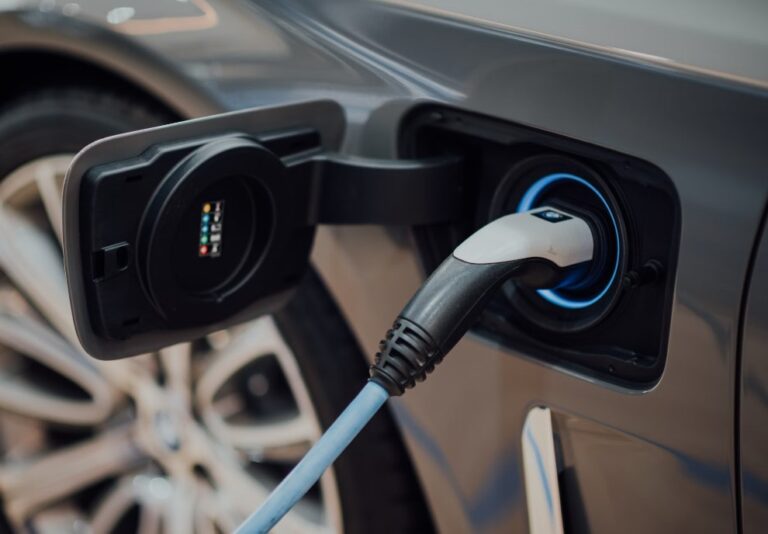The energy transition is leading thousands of large companies to invest billions to create new solutions useful for reducing carbon dioxide emissions, and combating climate change.
Among the first in investment we have the automakers, all of whom are focused on producing the least polluting electric cars possible. A very ambitious goal, as well as one with a very good prospect of making money, if it allows you to pollute less, and also to consume fewer and fewer resources.
This would no longer appear to be the case, at least according to a recent industry study. If the study were to be confirmed by other experts or further research, it would spell disaster for many automotive manufacturers.
Table of Contents
Electric cars also pollute: new study puts manufacturers on alert
It would seem absurd to say that electric cars pollute. We are talking about a car that has only a battery and an engine, to put it crudely. It should have no tailpipes, and therefore no CO2 emissions.
And it does, an electric car does not pollute because of emissions from the engine. But for something else, like the tires.
According to the new study published days ago by the U.S. magazine The Atlantic, electric cars are highly polluting not because of their classic carbon dioxide emissions, which are absolutely zero. But because of the tires they consume.
According to the study, electric cars would consume tire tires much more than regular cars. And as much as there is no usual tailpipe smoke behind it, tire wear releases huge amounts of microplastics into the environment.
And this is despite the fact that tire manufacturers are trying to develop tires and tires that are more durable and have less environmental impact. The problem is that doing so would still make the cost of the electric car prohibitive. And already the state is trying to make it more affordable through the 2023 car incentives.
To date, most electric cars run on classic tires. But if they were to be mandatorily equipped with special tires, the pool of buyers would be greatly reduced. And how can a global energy transition be made if the electric car becomes the preserve only of the rich?
How much pollution do electric cars really cause
As much as the absolute absence of CO2 emissions has been reiterated, given the lack of tailpipes, we have seen how the electric car is not totally eco-friendly.
Today’s models owe their power anyway to electric recharging at dedicated charging stations, whose energy comes from the grid fed by national power plants and others. So it gets its energy from electricity production derived from hydrocarbons and renewable sources.
If there are to be more and more electric cars in the future, energy production will have to go hand in hand. And unless we switch to 100 percent renewables as soon as possible, the increase will also have to come from combustion power plants.
Despite everything, the pollution they produce is insignificant, 77% less than recent thermal engines.
If anything, the problem is more about the bulk of the batteries, and their weight exerted on the car. In SUV-style models, the battery pack is so large that it significantly affects the weight of the car. Thus making it not perfectly suitable for today’s roads. To the point that they can leave potholes as they pass.
Again the new study published by The Atlantic cites the case of the Hummer EV model. In addition to its electric powertrain, which accounts for so much of the car’s total weight that it wears out even more of the tires on its tires, there is also its engine cup. Which allows for “regenerative braking” as well as “lightning fast starts.”
All useful for the electric motor to capture energy and save it. But less so for the tires, which do nothing but release additional particulate matter into the air.
How much pollution an electric car battery makes
Another aspect not to be overlooked, as far as pollution from electric cars is concerned, is that of electric batteries. In this specific case, their production and disposal.
The production of an electric car battery is terrifying. It requires vast amounts of energy and rare materials. To the point that very few states in the world can afford it.
In turn, disposal, if done incorrectly, releases countless substances into the environment that are toxic to humans. Not surprisingly, it is difficult to produce and dispose of a battery in the European Union. In fact, the vast majority of activities are conducted in China.
The only solution to prevent the electric car from becoming a four-wheeled nightmare for everyone, and not only for the environment, is to aim for weight and power reduction.
The same study called on the U.S. government and those around the world to aim in this direction. Namely, to reduce the weight and power of electric cars.
Otherwise we will only have unnecessarily expensive vehicles with no ecological difference from current thermal engines. Then it pays to consider buying a hybrid car instead of an electric one.
Read also: Electric cars, Sweden is building the first highway that can recharge them












